In 1976 I was three years old and a brand new Superhero appeared on British news stands and comics in our country changed forever. Captain Britain arrived and was embraced by a population who for years had been craving for their a patriotic hero to call their very own. From that point forward me and my friends would play at being Captain Britain, playfully hitting each other with crude replicas of his signature gold staff that kids TV show Blue Peter had told us how to make out of cardboard tubes. Go to any fancy dress party and there would be at least one kid dressed as Captain Britain.
During the dark days of the Falklands War as the British population readied itself against the threat of an Argentinian invasion on it’s shores, it was the symbol of Captain Britain that we rallied around. The sale of war bonds soared as the Captain Britain media tour swept across the country. He was a war hero who’s balls we would not drain if it turned out he was gay. Captain Britain became as Iconic to us as The Beatles, Winston Churchill and William Shakespeare.
This is of course all complete Bollocks.
As immersed in all things geeky as I was, I never even realised there was such a character as Captain Britain. It wasn’t until the shortlived monthly series in 1985 that I became aware of him and even then he wasn’t a character that I really gave a chance. As it was very few traditional Superheroes had an impact on the UK in those days. Those that did such as Batman, Superman, Wonderwoman, Spiderman and Hulk did so more on the back of their TV shows or movies and it was these versions that kids knew much more than their comics.
Britain has its own tradition of heroes in its mythology such as Robin Hood, King Arthur but the cape and mask crusaders never found a foothold in its home grown comics.
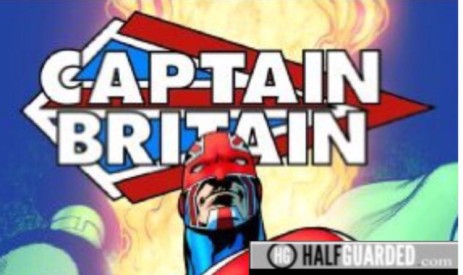
There were attempts, especially after the second world war when the comic supply from the visiting G.I’s dried up. Miracleman was the most notable but most anthology comics attempts to cash in on the craze overseas are forgotten by all but the most dedicated aficionados. A few of the funnies would feature a more adventure orientated strip that had superhero style characters such as Billy the Cat in the Beano and the campy but fun Amazing Three in Jackpot (which featured the hilarious Thing ripoff in Oakman who instead of being made of stone was you guessed it made of Oak). But they were always a backup feature and never became iconic stars such as Dan Dare, Desperate Dan or Dennis the Menace that the comics were built around.
Despite this Marvel was enjoying success in the British comic market with it’s own UK division that reprinted American stories in the larger, anthology format we used over here as well as producing film and TV tie ins. In 1976 they decided to take a step further and for the first time produce a star purely for the UK market. What they felt the UK would respond to was it’s very own patriotic hero in the mould of Captain America.
So with the traditional free gifts to entice readers (issue 1 featured a Captain Britain mask while issue 2 saw a Captain Britain boomerang added to the UK skies already oversatuated with comic giveaway and no doubt a few British broken windows along the way) Captain Britain weekly appeared created by Chris Claremont and Herb Trimpe, whose credentials for writing a comic set in Britain seemed to be that they’d been to Cornwall for a couple of weeks one time.
Looking back for this Captain Britain review had an awkward feel to it. The comic kept to the antholgy style (back up strips were Fantastic Four and Nick Fury reprints) which meant Captain Britain only had 8 pages an issue which combined with the Marvel style of large panels gives the stories a rushed feel. The first issue had to be totally reworked when it was realised in building his origin the Captain didn’t actually appear, so the origin is told via a flashback.
There are also problems with the authenticity of the British setting. In this comic it seems there are only two types of places in Britain, foggy London (populated by chaps in bowler hats and umbrellas) and remote rural villages populated by pitchfork wielding farmers. Aside from forcing some British quirks to the dialogue (lots of references to Cups of tea, and Brits referring to Americans as Yanks etc) there’s little that represents the culture of the country in the 70’s, no punk music, soccer terraces or industrial action. This is a comic about Britain based on Americas outdated interpretations of us.
Captain Britain himself is a fairly generic superhero, his alter ego Brian Braddock comes with all the superhero sterotype background, an orphan, laden with guilt at the death of his parents (seems he was giving it to some tart the night they died) and being a bit of a wallflower competing with a bully for the affections of his true love (face it he’s Spiderman). He’s also a bit of a posh boy, living in a mansion with his brother and sister (Betsy who would go on to be X-Men Psylocke), while most UK heroes had a more down to Earth working class background.
It’s not that it’s a bad comic, it’s just your average superheroics that Marvel was publishing at the time not tailored towards a venture into a new market. There is a enjoyable storyarc with the Red Skull plotting against the UK, which makes sense because believe it or not us Brits did play a pretty big role in the Second World War despite what Hollywood may have you believe (there got that out of my system). Naturally this brings in a team up with Captain America (Americans coming to save us from the Nazi’s again? You wonder why this comic didn’t hit with British audiences) who after the traditional scuffle that occurs whenever two superheroes get within a few feet of each other, the two get on so well it starts to border on sheer bromance.
Captain Britain weekly didn’t last a year and ended at issue 39 where it was “merged” with the weekly spiderman comic. After reprinting a team up between the two heroes from Marvel Team Up (which featured Captain Britain’s US debut) the Captain disappeared from the comic all together and from Marvel pages for over a year.
In 1979 with sales falling Marvel UK was undergoing a revolution under Dez Skinn who was tailoring the comics to better fit in with the UK readership. Skinn was keen to feature more British made content and this is evident with a new Hulk comic in 1979 created to capitalise on the success of the Incredible Hulk TV series. Originally even the main Hulk story was made by UK talent, as were the back up strips of Night Raven and Black Knight.
The Black Knight was rooted heavily in British folkore, and saw him embarking on a quest through a Tolkien like landscape of giants , trolls and wizards aiding Meryln in a war against the forces of Mordred. Along the way he is sent to recruit a mysterious hero, living as a hermit on a beach with no recollection of who he is. Although if he’d taken his coat off he’d have had a clue as he was wearing Captain Britain’s outfit.
Following this entertaining partnership Captain Britain is sent on his way by Merlyn and emerged once again with his own solo story this time in anthology series Marvel Super Heroes, it’s here where Captain Britain really found it’s direction. Alan Davis gave the Captain a complete makeover with a fresh costume embracing the Union Jack (quite daring as brandishing the flag so overtly in the UK has sadly extreme right connotations in Modern Britain).
Now in an alternate universe where Britain is living under a fascist government and Superheroes have been hunted down and slaughtered (a graveyard shows tombstones for Miracleman, and references to Robot Archie (renamed Android Andy) and longtime Daily Mirror strip Garth) and with an often drunk elf sidekick Jackdaw, Captain Britain had a darker edge and a better grasp of British humour.
Look, it’s hard to describe how whacky as shit the comic became from this point forward and was all the better for it. Tangling with such bizarre creations as Mad Jasper and the Crazy Gang (who use a flying teapot as a getaway vehicle) the bowler hat and umbrella brandishing “Avant Guards” (geddit?) the “Status Crew” (geddit again?), a tea drinking Ratman and the gorgeous Lady Saturnyne the story mixes all the elements of Monty Python, Alice in Wonderland, the New Avengers (the British TV show not the Marvel Comic), Dr Who and doses them up with a helping of satire on British culture at the time.
Captain Britain himself grows into a completely different character, totally bemused by the bizarre turn his adventures have taken him, gaining a sarcastic edge and becoming overall more kick ass. He even takes the very un superhero like move to help Lady Saturnyne in a plot to contaminate the population’s water supply to “push” the evolutionary intelligence of the population. So much for not interfering in a society’s development, seriously it’s quite sinister even if good intentioned.
It only gets better when Alan Moore comes on board as writer (starting with the strips switch to the new Dardevils comic) introducing a nightmare robot hero hunter called the Fury who seemingly kills the Captain in Moore’s very first issue. Moore also breaks the fourth wall, dedicating his second issue to a newspaper style story where he details the mistreatment of the Captain Britain in the past.
Captain Britain is resurrected in his own universe and reunited with sister Betsy now using her telepathic powers and sporting purple hair as a sign of a more modern Britain.
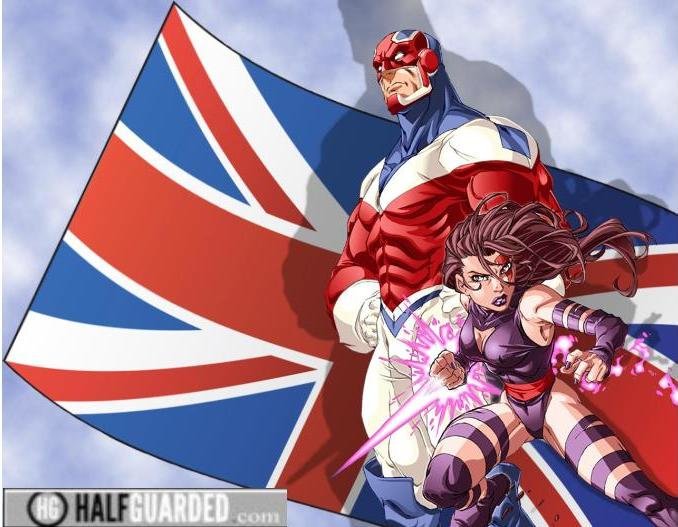
Moore’s biting humour is evident throughout his run. A battle with arch nemesis the Slaymaster takes place in London’s famous Forbidden Planet comic shop, where a member of staff scrambles to save a copy of X-Men 137 from the shop window. The introduction of alien bounty hunters the Special Executive continues the wild tone of the comic, especially with precog Cobweb who often doesn’t bother to tell her team mates of things about to happen either because they’ll happen anyway or because she’s mad with them for insults they send her way in the future (look, it’s funny if you read it trust me).
There is some hilarious dialogue between all the players and Moore manages to make Captain Britain entirely more likeable, surprisingly by portraying him as more stubborn, short tempered and on occasions really stupid when relating to others.
There is also lots of self awareness. Take one of my favourite lines of dialogue during a battlescene.
“I’m in a Parallel Universe, fighting an alternative version of myself, alongside a group of parahuman mercenaries who want me to help the wrongly accused majestrix of…………do you ever get halfway through a sentence and find yourself unable to believe that you’re actually saying it?”
Moore would leave Captain Britain after disputes with Marvel and Jamie Delano would take over writing duties while Alan Davis would continue to draw the strip. Marvel UK’s anthology titles would ultimately fold one by one, however Captain Britain would once again be given a shot at his own comic, this time a monthly with sci fi inspired backup strips.
The stories remained fresh, inventive but the overall crazy humour that Moore had brought was missed. There also appeared to be creative conflicts behind the scenes between Davis and Delano, but in any case the series was cancelled with issue 14 and Captain Britain pretty much ended as a British property right there.
There was talk of another British monthly in the US format (as Marvel tried with Dragon’s Claws and Death’s Head) however Captain Britain would be reclaimed by it’s original creator Chris Claremont and integrated more fully into the regular Marvel Universe as part of X-Men spin off Excalibur.
I’ve only read a sampling of Excalibur and so not really qualified to comment on what has happened to the character since. I mean I could wing it and read a load of wiki pages and try and cobble together something. But I am an honest man, with integrity and won’t try to be an expert on things I know nothing about (I only try to be an expert of things I only THINK I know something about).
In truth I’ve only read any Captain Britain in the last month. And I want more. I want a Captain Britain for today. Written and drawn by British talent and about Britain. Just like The Moore run had a sci fi/fantasy premise but still reflected the culture of 80’s Britain, I want a 21st Century Captain Britain that satirises or comments on our culture.
Because frankly, there is a lot of scope for this.
Till next time,
Dazza

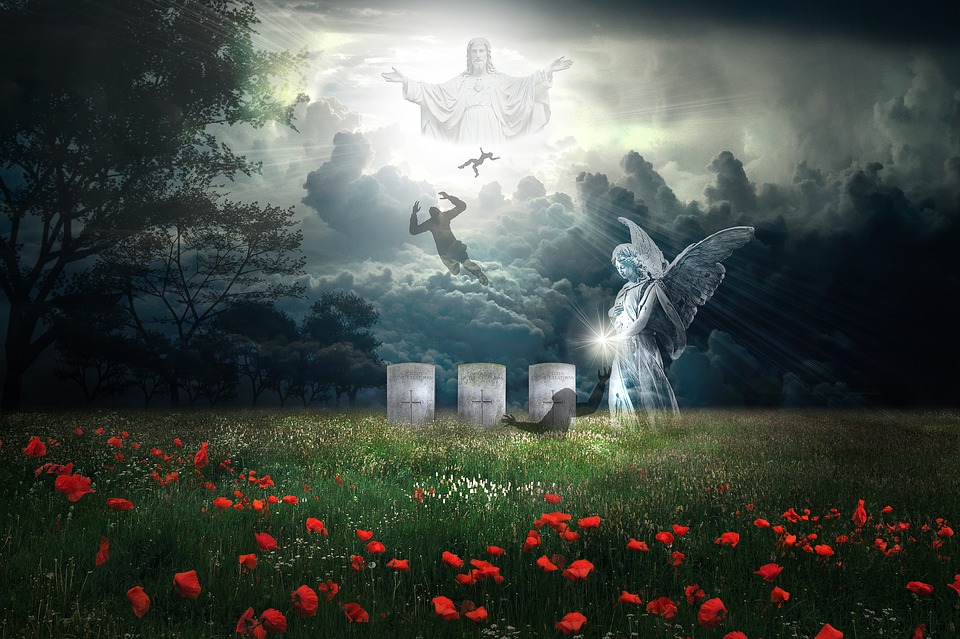



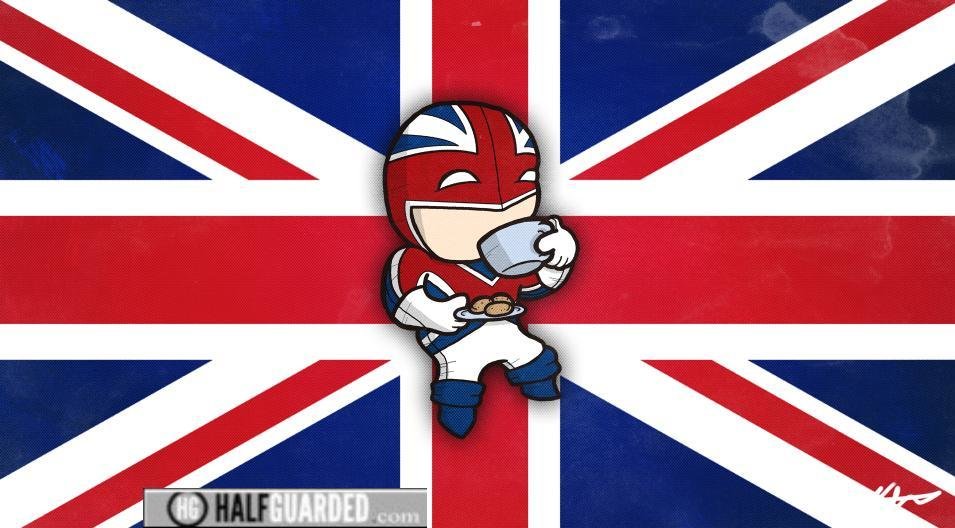
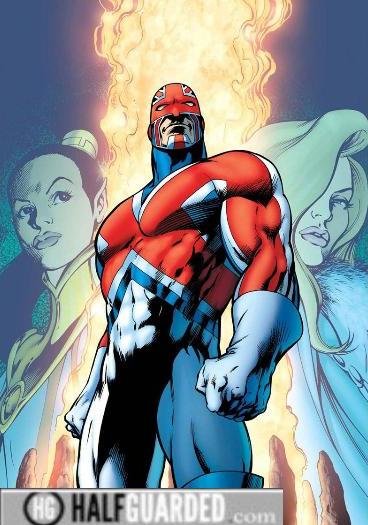



GREAT ARTICLE.